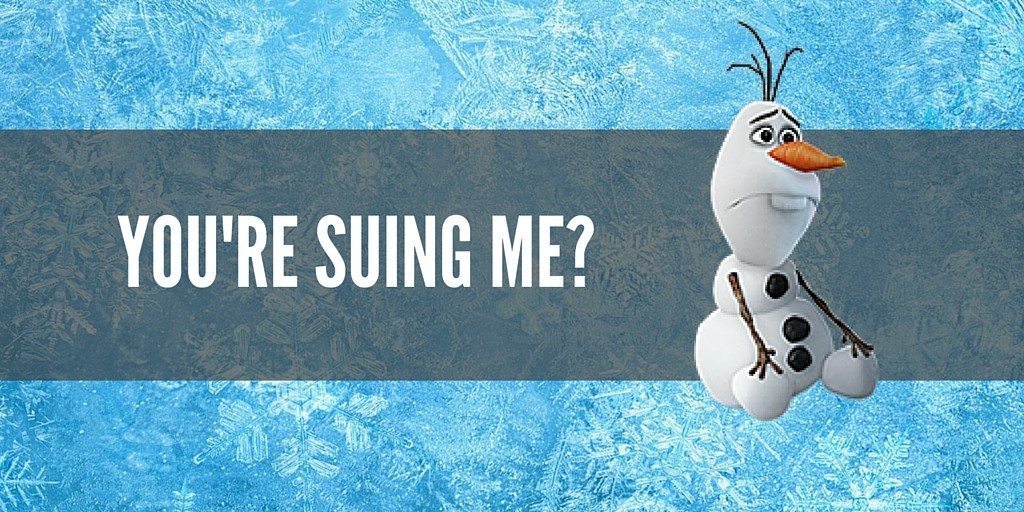
Famous Film Lawsuit Profile: Disney’s Frozen
When it comes to famous film lawsuits, there is a lot to be learned about the importance of proper clearance procedures.
It may seem as if big budget projects are the most susceptible to legal entanglements. However, indie filmmakers are not impervious to legal claims, and these projects are more susceptible to being shelved than studio pictures due to tighter budgets.
The lawsuit surrounding Disney’s Frozen provides an excellent example of how the improper use of clearance procedures can lead to trouble. This case goes to show you how important it is to protect your creative work by obtaining an annotation guide and following it up with a script clearance report.
What happened?
The plaintiff simply wouldn’t Let It Go.
In fact, the plaintiff sued with the claim that the Frozen trailer resembled her short film—an animated feature that chronicled the life of a snowman. The case has now been settled, but begs for dissection—especially since the problem could have been avoided.
Before we launch into details on the case, the below video will give you an unbiased look into what the lawsuit is all about.
When you watch the Frozen trailer juxtaposed with The Snowman short film, you will in fact notice some striking similarities. And thus, you have the basis of the lawsuit.
There’s no question that the Walt Disney Corporation is a powerhouse with billions of dollars and positive name recognition to tip the legal odds in their favor.
However, despite Disney’s deep pockets and top notch litigation team, the lawsuit was not thrown out.
After Disney appealed for case dismissal, Judge Vince Chhabria deemed the legal claim to be reasonable. According to Judge Chhabria:
“The sequence of events in both works, from start to finish, is too parallel to conclude that no reasonable juror could find the works substantially similar.”
Though details are sparse, there has been a settlement. There’s little doubt that an annotation guide and thorough script clearance report would have saved the company money, time, and energy.
In this case, Disney has the resources to handle suits like this—they are, after all, a multibillion-dollar company.
But what about independent filmmakers, screenwriters, television producers, and other indie artists?
If they find themselves in a situation such as this, the money lost might stall production or kill the project completely.
What is an Annotation Guide?
An annotation guide will identify every character, location, and event and state where the inspiration for each item originated. You should always obtain an annotation guide from your screenwriter along with the purchase of the script. An experienced screenwriter will annotate their script (often in the margins) as they develop it. Don’t forget to follow through with this practice when any rewrites are made.
Why get a Script Clearance Report?
So what does a script clearance report do for independent film and television projects? Long story short, your script clearance report will help you…
- Prevent possible copyright claims.
- Stop trademark lawsuits.
- Bypass publicity court cases.
- Avoid privacy invasion claims.
- Steer clear of defamation lawsuits.
The thing is, mistakes are sometimes easy to miss, especially if you’re extremely close to a project. Not to mention, a legal professional is trained to find elements that lead to legal exposure.
What happens if your clearance team finds exposure risks?
If your clearance team finds legal exposure risks in your script, a few things can happen, depending on where you are in the process.
- If you’ve finished your project, but it hasn’t started running, you may have to edit or go back and re-film scenes, which is costly and time-consuming.
- If your project is in front of audiences, you have a real risk of legal exposure.
- If your project is in script form, but hasn’t started filming, you’re in a good position to make a simple change that will protect you in a profound way.
The moral of the story is, always obtain an annotation guide and access your script clearance report before the camera starts rolling.

